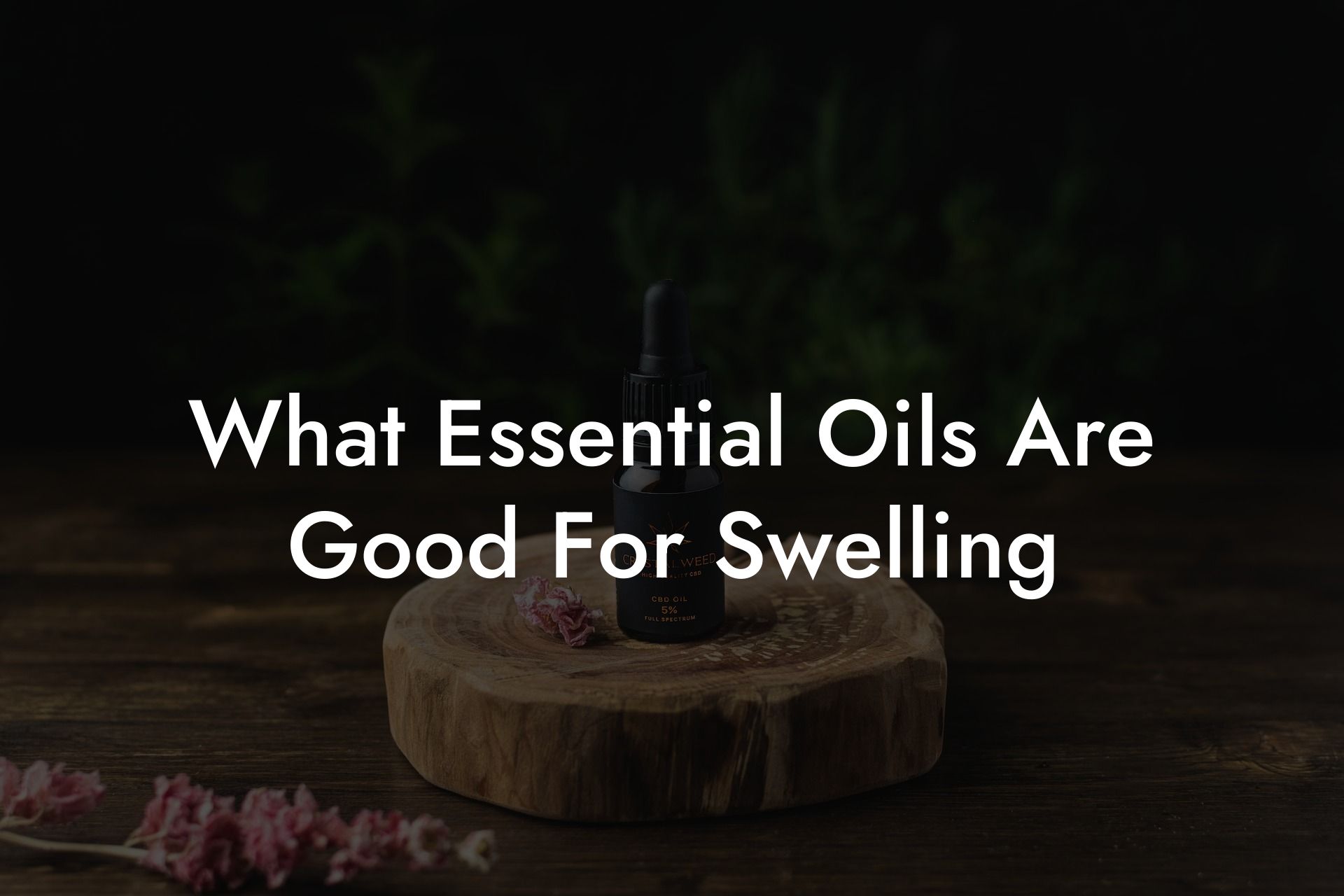Swelling can occur for various reasons, ranging from an injury to an underlying medical condition. While there are many conventional treatments available, essential oils have gained popularity as a natural, alternative approach to dealing with swelling and inflammation. In this article, we will explore the top essential oils known for their anti-inflammatory and healing properties, and how you can incorporate them into your self-care routine to find relief from swelling.
Table of Contents
The Top Essential Oils for Swelling
Essential oils, derived from the plant’s natural aromatic compounds, have a wide range of therapeutic benefits which can aid in the reduction of swelling. Here are the top essential oils to consider for their anti-inflammatory properties:
1. Lavender
Lavender oil is known for its calming effects and its ability to alleviate pain. It contains anti-inflammatory properties that can help reduce swelling and promote healing.
2. Peppermint
Peppermint oil contains cooling menthol, which may help to relieve pain, reduce inflammation, and improve circulation. This makes it an ideal choice for addressing swelling associated with inflammation and injury.
3. Eucalyptus
Eucalyptus oil has been traditionally used for its anti-inflammatory and analgesic effects. Eucalyptus contains a chemical compound called eucalyptol, which has demonstrated the ability to reduce inflammation and swelling.
4. Frankincense
Frankincense oil is derived from the resin of the Boswellia tree and has been used for centuries for its healing properties. Research suggests that frankincense has potent anti-inflammatory effects which can help alleviate swelling and pain.
5. Rosemary
Rosemary oil is known to possess anti-inflammatory and analgesic properties, making it a popular choice for reducing swelling. Its warming effect may also help improve circulation, promoting the healing process.
Using Essential Oils for Swelling
There are several ways to incorporate essential oils into your routine to support the reduction of swelling and inflammation:
1. Topical Application
Dilute your chosen essential oil with a carrier oil, such as coconut or almond oil, and gently massage it into the affected area. This can help the oil penetrate the skin and get to work reducing the swelling and inflammation.
2. Aromatic Inhalation
Inhale the scent of the essential oil by adding a few drops to a diffuser or placing a drop on a cotton ball and inhaling the scent. This method can help you experience the therapeutic benefits of the oil while also providing a sense of relaxation.
3. Warm or Cold Compress
Add a few drops of essential oil to a warm or cold compress and apply it to the swollen area. The temperature combined with the healing properties of the essential oil can help reduce swelling and inflammation.
What Essential Oils Are Good For Swelling Example:
Suppose you recently sprained your ankle and are experiencing swelling and discomfort. You can create a blend of essential oils that are known for their anti-inflammatory benefits, such as lavender, peppermint, and eucalyptus. Mix a few drops of each oil with a carrier oil, like almond oil, and gently massage the mixture onto your ankle. This can help reduce inflammation and promote healing.
Additionally, add a few drops of your chosen oils to a diffuser to create a therapeutic environment. Inhaling the scents can help you feel more relaxed and promote overall wellbeing.
Essential oils can be a valuable addition to your self-care routine in reducing swelling and inflammation. By incorporating the oils mentioned in this article, you can harness their therapeutic properties for a holistic approach to swelling management. Feel free to share this guide with friends and family members who might benefit from the use of essential oils for swelling. Moreover, be sure to check out other articles on our Oshu Oils blog for more insights into essential oils and aromacology. Explore the Oshu Oils range of essential oils and find the perfect blend to assist you on your journey towards better health and wellbeing.





















